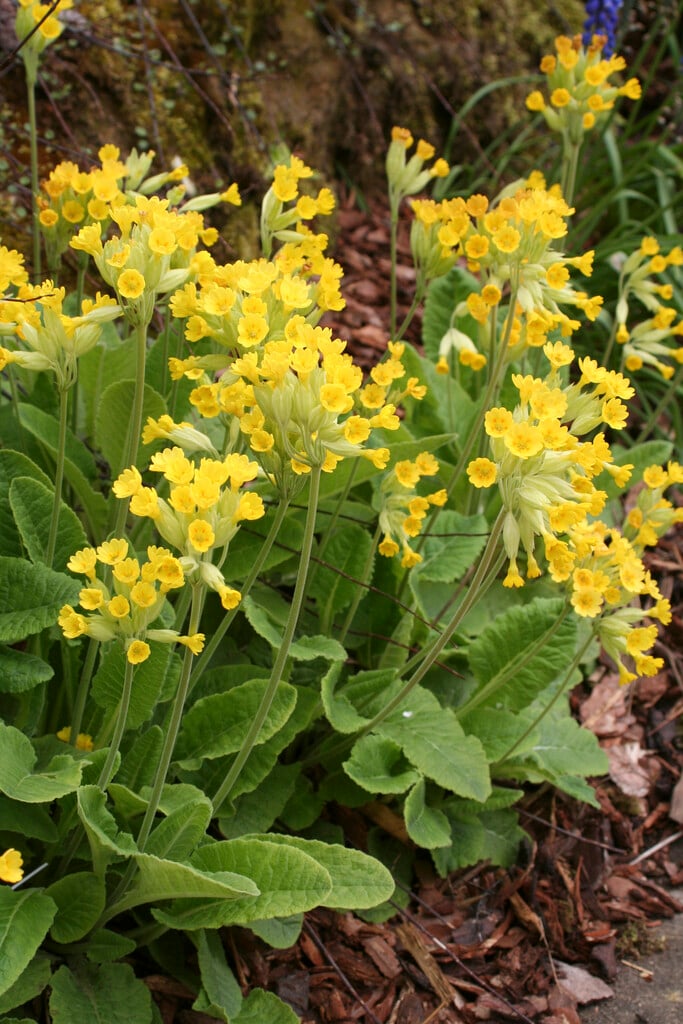Primula veris (Pr)

common cowslip
A semi-evergreen perennial to 25cm, with a rosette of distinctly stalked, oblong-ovate leaves and upright stems bearing umbels of nodding, bell-shaped, fragrant rich yellow flowers 1.5cm in width
Other common names
Bedlam cowslipfairy cup
see moregalligaskins
gaskins
herb Peter
key flower
keywort
lady's bunch of keys
lady's candlestick
lady's keys
lady's seal
luck flower
paggles
paigle
paiglewort
palseywort
paralysis
petty mullein
primerole
primet
St Peter's wort

Buy this plant
Size
Ultimate height
0.1–0.5 metresTime to ultimate height
2–5 yearsUltimate spread
0–0.1 metreGrowing conditions
Moisture
Moist but well–drainedpH
Acid, Alkaline, NeutralColour & scent
| Stem | Flower | Foliage | Fruit | |
| Spring | Yellow | Green | ||
|---|---|---|---|---|
| Summer | Green | |||
| Autumn | Green | |||
| Winter | Green |
Position
- Full sun
- Partial shade
Aspect
South–facing or West–facing or East–facing or North–facing
Exposure
Exposed or Sheltered Hardiness
H5Botanical details
- Family
- Primulaceae
- Native to GB / Ireland
- Yes
- Foliage
- Semi evergreen
- Habit
- Clump forming
- Genus
Primula are herbaceous or semi-evergreen perennials, forming a basal rosette of simple leaves, with salver-shaped or bell-shaped flowers which may be solitary or carried in an umbel or in whorls on an erect stem
- Name status
Correct
- Horticultural Group
- Primula section primulas can be evergreen or herbaceous perennials, forming a rosette of oblong or obovate leaves and with clusters or umbels of salver-shaped flowers in winter or spring
- Plant range
- Europe, W Asia
How to grow
Cultivation
Grow as biennials for bedding and in a container or rock garden. Favours a sheltered position in sun or partial shade
Propagation
Propagate by seed or root basal cuttings
Suggested planting locations and garden types
- Wildlife gardens
- Wildflower meadow
- Cottage and informal garden
- Patio and container plants
- Low Maintenance
- Flower borders and beds
- Garden edging
Pruning
No pruning required
Pests
May be susceptible to aphids, vine weevil, slugs, leaf and bud eelworms and glasshouse red spider mite
Diseases
May be subject to a leaf spot and grey mould
Love gardening
Sign up to receive regular gardening tips, inspiration, offers and more
View our Privacy Policy
Get involved
The Royal Horticultural Society is the UK’s leading gardening charity. We aim to enrich everyone’s life through plants, and make the UK a greener and more beautiful place.